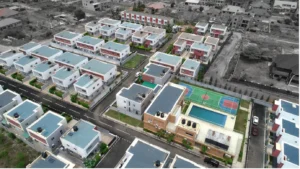 Affordability of housing is a critical issue in Ghana, as a large portion of the population lacks access to decent and affordable houses for sale in Ghana. The future of affordable housing in Ghana will be determined by a number of factors, including the government policy, private sector participation, and community participation.
Here are some potential strategies and trends that may shape Ghana’s affordable housing future:
Affordability of housing is a critical issue in Ghana, as a large portion of the population lacks access to decent and affordable houses for sale in Ghana. The future of affordable housing in Ghana will be determined by a number of factors, including the government policy, private sector participation, and community participation.
Here are some potential strategies and trends that may shape Ghana’s affordable housing future:
- Government investment in housing:
- Private sector involvement:
- Community participation:
- Use of new technologies:
- Innovative financing models:
Views: 22


